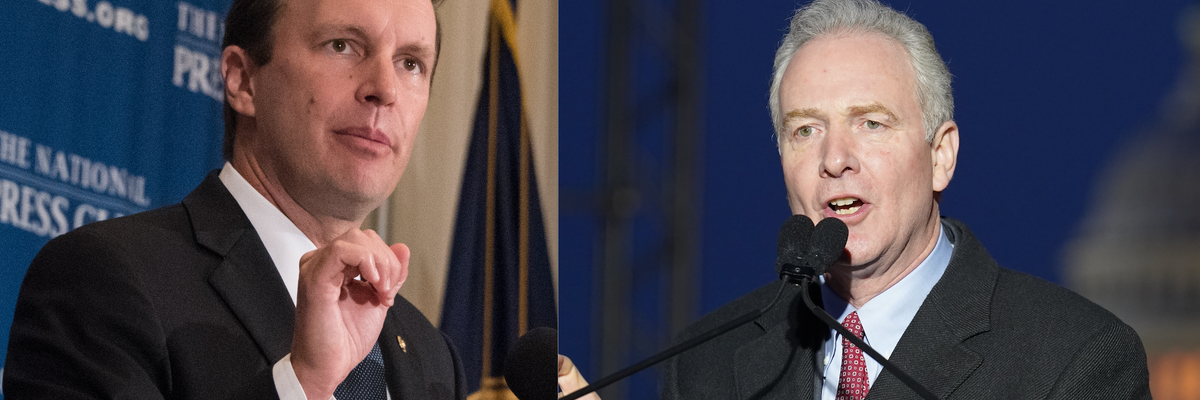Nearly two dozen U.S. senators sent a letter to President Biden on Wednesday expressing concern about reports of a potential American security guarantee for Saudi Arabia that has been reported to be part of a larger normalization deal with Israel.
“Peace between Israel and its neighbors has been a longstanding goal of U.S. foreign policy, and we are maintaining an open mind about any agreement that would potentially deepen the political, cultural and economic ties between Saudi Arabia and Israel,” says the letter, which was led by Sens. Chris Murphy (D-Conn.) and Chris Van Hollen (D-Md.).
But, the senators add, “We are concerned about reports that Saudi Arabia is requesting a security guarantee from the United States in exchange for normalization with Israel. Historically, security guarantees through defense treaties have only been provided to the closest of U.S. allies: democracies that share our interests and our values.”
Murphy has been particularly vocal about committing U.S. troops to Saudi Arabia’s security, wondering during a recent CNN interview, “Is this the kind of stable regime that we should commit American blood to defending?”
The senators said they would need a “high degree of proof” that such an arrangement with Saudi Arabia “aligns with U.S. interests,” given that the Saudi government is “an authoritarian regime which regularly undermines U.S. interests in the region, has a deeply concerning human rights record, and has pursued an aggressive and reckless foreign policy agenda.”
The letter also expressed concern about the possibility of a civilian nuclear program inside Saudi Arabia as part of any wider deal and said that any agreement “should include meaningful, clearly defined and enforceable provisions to achieve your stated objective of preserving the option of a two-state solution to the Israeli-Palestinian conflict and to ensure that there be ‘equal measures of dignity and security’ for both Israelis and Palestinians.”
Concerns about any broad U.S.-Saudi-Israel agreement on these terms have reverberated outside Capitol Hill as well. The Biden administration “still has not explained how any such agreement would serve either U.S. interests or the cause of peace and stability in the Middle East,” said Paul R. Pillar, a non-resident Senior Fellow at the Center for Security Studies at Georgetown University. “In fact,” he added, “it would do neither, and instead would only prolong and even increase confrontation and instability in the region.”
The Cato Institute’s Jonathan Hoffman wrote in RS last week that Saudi Crown Prince Mohamed bin Salman is exploiting American fears of growing Chinese influence in the region to extract big concessions from the U.S. “A security guarantee for Saudi Arabia would entrap Washington as Riyadh’s protector despite a fundamental disconnect between the interests and values of the United States and the kingdom,” he said.
















